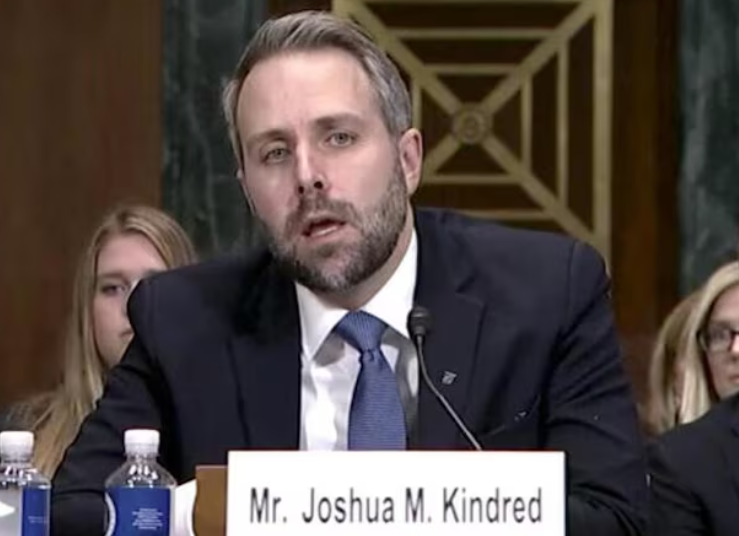A national judicial conduct committee has upheld a panel’s findings that a now-former federal judge in Alaska engaged in misconduct by having an inappropriate sexualized relationship with one of his law clerks and creating a hostile work environment for court employees.
On Thursday, the Judicial Conference’s Committee on Judicial Conduct and Disability affirmed a decision by the 9th Circuit Judicial Council, which led U.S. District Judge Joshua Kindred to resign from the bench last month.
The five-member panel concluded that the council conducted a “thorough investigation,” ensured Kindred received due process, and implemented “appropriate” remedial measures in response to the “seriousness of the misconduct.” These measures included reprimanding Kindred and requesting his voluntary resignation. The council also referred the case to the Judicial Conference, the federal judiciary’s top policymaking body, to consider recommending Kindred’s impeachment by Congress.
The panel supported the 9th Circuit’s decision to refer the matter for impeachment but did not address whether the Judicial Conference should ultimately recommend Kindred’s impeachment. The full Judicial Conference will make that determination. If impeached and convicted in a U.S. Senate trial, Kindred could be barred from holding any federal office in the future.
Kindred, who could not be reached for comment, faces charges of wire fraud and aggravated identity theft.
Appointed by Republican former President Donald Trump, Kindred had served only four years on the bench before resigning amid a sexual misconduct scandal that raised concerns about the cases he oversaw and prompted some lawmakers to call for greater workplace protections for judicial employees.
The 9th Circuit’s investigation revealed that Kindred created a hostile work environment for his clerks by using crude language and discussing his sex life, their relationships, and his “disparaging” views of colleagues and public figures. Investigators also found that he fostered an inappropriately sexualized relationship with a law clerk, with whom he had two sexual encounters in October 2022 after she began a new job in the U.S. Attorney’s Office.
That former clerk has since filed a complaint with the U.S. Office of Special Counsel, alleging that the office’s leaders retaliated against her after she reported Kindred’s conduct to her superiors.
The 9th Circuit inquiry also identified potential conflicts of interest involving Kindred and other lawyers, including a senior prosecutor with whom the judge had a “flirtatious rapport” and who had sent him nude photographs. Such conflicts, if unknown to the parties involved, could provide grounds for defense lawyers to challenge convictions or sentences imposed by Kindred. Prosecutors have identified dozens of cases in which these conflicts may have existed.

